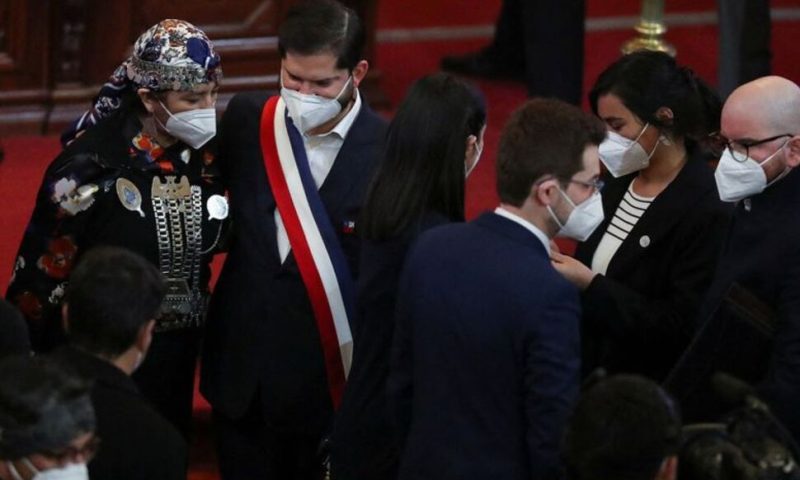SANTIAGO – Chile’s constitutional assembly handed over the final text of a proposed new constitution to President Gabriel Boric on Monday, finalizing a year-long process to replace the country’s magna carta that dates back to the Augusto Pinochet dictatorship.
The ceremony, held in Santiago, kicks off a two-month campaign to sway voters to approve or reject the proposed text during a mandatory plebiscite on Sept 4.
“Today we start a new phase,” Boric said after receiving a purple booklet with a Chilean flag and 388 articles that could lay a new foundation for the world’s top copper producer. “It’s now about reading and debating the constitutional proposal that’s been handed to the country.”
The proposed text pulls back from the current free market constitution to focus on social rights, gender equality, indigenous autonomy and the environment.
“It will once again be the people who have the last word on their destiny,” Boric said.
Nearly 80% of Chileans voted to draft a new constitution in 2020 after violent protests against inequality rattled the Andean country the previous year, but support has since dropped considerably.
A new poll released by Cadem Sunday night showed 51% of respondents plan on rejecting the new constitution, the highest since the pollster started tracking.
The 155-member constitutional assembly, consisting of mostly independent and left leaning members, faced several political controversies that led to the decreasing support.
“I’m an imperfect and real person,” Gaspar Dominguez, vice president of the assembly said during the ceremony. “And the process was like that: imperfect and real.”
Boric, who has been closely linked to the process, is facing his worst approval ratings.
September’s vote, Boric said, should not be an assessment of the government but a debate “about the future and destiny of Chile for the next four or five decades.”

